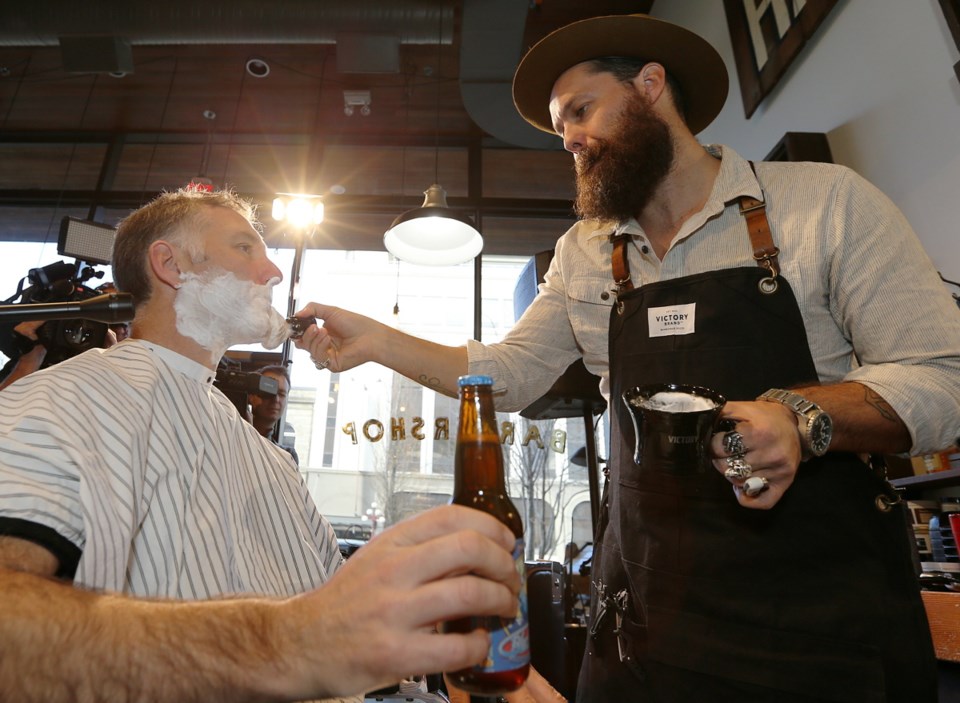Sipping on pinot during a pedicure or having a beer with book shopping or a barbershop shave. Sounds like such a civilized way to mix business with pleasure as part of the provincial government’s stated vision for “progressive liquor laws for a modern B.C.” announced last fall.
Imagine the flood of applicants wanting to take part.
Ah, no...
Only two so-called non-traditional businesses have applied since the application process opened Jan. 23. By March, no licences had been granted, said Chris Harbord, communications director for the B.C. Liquor Distribution Branch, adding the application process is expected to take seven to 12 months.
All businesses are eligible, except those that cater to minors or involve the operation of motor vehicles.
Applicants who want to serve a few dozen drinks a day to their customers must undertake the same rigorous process required for people who want to open a bar.
It’s called a liquor primary licence and the handbook on the termsand conditions runs to 42 pages.
The application fee is $2,200 and the first-year licensing fee another $2,200, with subsequent annual renewal fees based on sales but ranging from $250 to $2,200.
Some might say the fees are on the onerous side for a business person who might serve just a few, or a few dozen, alcoholic drinks a day.
“A top priority of government is making sure that the sale of liquor is done in a safe, responsible way, and is kept out of the hands of minors,” Harbord said. So the process requires Serving-it-Right certification for all people involved with the sale of alcohol as well as a criminal records check, although a record does not preclude a non-traditional licence.
“This change is not meant to encourage every business in British Columbia to apply for a licence,” Harbord said. “Instead, it is meant to allow businesses that see a natural fit for liquor service within their business model the opportunity to apply for a licence.”
All alcohol served in non-traditional settings must be purchased through the Liquor Distribution Branch, or a liquor manufacturer on behalf of the LDB.
Would businesses have to charge for the alcohol or could they throw in a glass of wine as part of the spa experience, for instance?
“Businesses must charge for their liquor,” she said. “However, they can include liquor as part of a package, provided the amount of liquor provided is specified and not unlimited, and is separately itemized on the bill.”
Matty Conrad, owner of Victory Barber & Brand on Blanshard Street, said he has supported the policy change since he opened downtown in 2011, and is in talks with the city for a licence.
He sees, however, “significant problems with how the province framed the policies that are making it largely prohibitive,” he added.
Brett Lacey, co-owner of Arq Salon on Douglas Street, has been talking about the idea for more than two years, but is disappointed in how onerous the application process is, even if he understands why.
“This is quite prohibitive for a small businessperson to come up with this kind of money,” he said. And it’s unfair, he said, not to distinguish between businesses offering customers a glass of wine to make the primary focus of a business more relaxing and going into the liquor business.
“It wasn’t meant to be the cornerstone of my profit.”
Click here for Capital magazine e-edition
